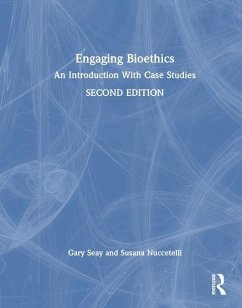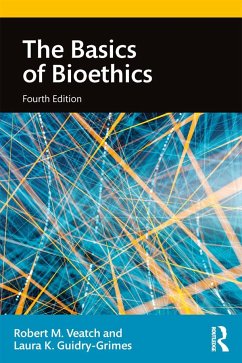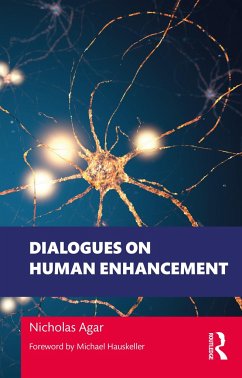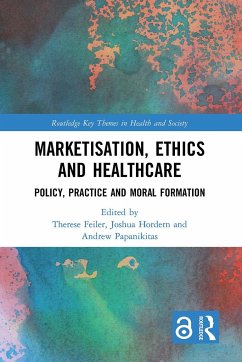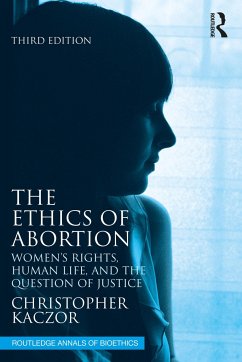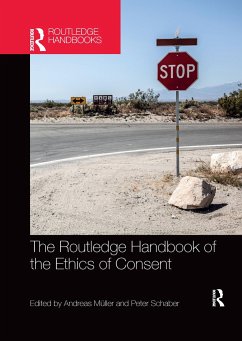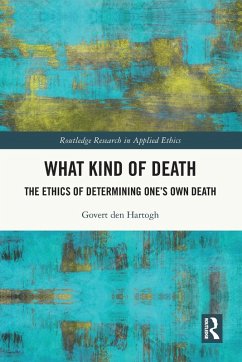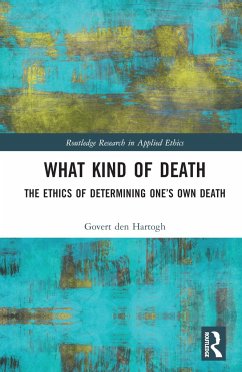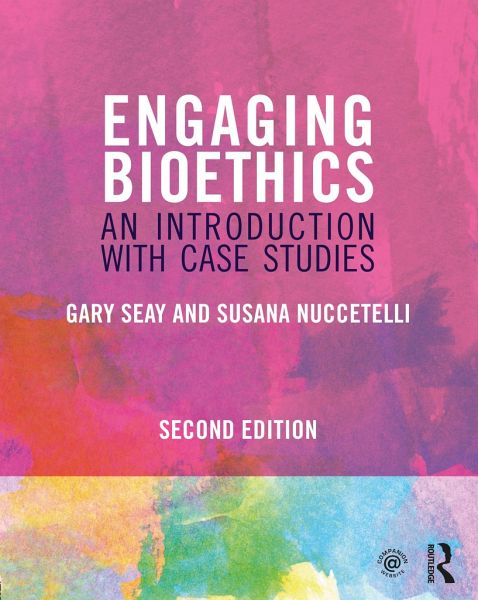
Engaging Bioethics
An Introduction With Case Studies
Versandkostenfrei!
Versandfertig in 6-10 Tagen
56,99 €
inkl. MwSt.
Weitere Ausgaben:

PAYBACK Punkte
28 °P sammeln!
Presuming readers start with no background in philosophy, this enhanced introduction to bioethics first provides balanced, philosophically based coverage of moral reasoning, moral theories, and the law. It then leads the newly equipped reader to explore a range of important ethical issues in health care and biomedical research.Engaging Bioethics, Second Edition is designed for undergraduates throughout the humanities and social sciences as well as for healthcare professionals-in-training, including students in medical school, pre-medicine, nursing, public health, and those studying to assist p...
Presuming readers start with no background in philosophy, this enhanced introduction to bioethics first provides balanced, philosophically based coverage of moral reasoning, moral theories, and the law. It then leads the newly equipped reader to explore a range of important ethical issues in health care and biomedical research.
Engaging Bioethics, Second Edition is designed for undergraduates throughout the humanities and social sciences as well as for healthcare professionals-in-training, including students in medical school, pre-medicine, nursing, public health, and those studying to assist physicians in various capacities. Along with coverage of standard bioethical issues-such as vaccination, access to health care, new reproductive technologies, genetics, research on human and animal subjects, abortion, medical confidentiality, and disclosure-it now addresses ethical aspects of the Covid-19 pandemic, the US Supreme Court's Dobbs v Jackson decision, use of CRISPR forhuman gene editing, and the expansion of medically assisted death globally.
Key Features
Flexibility for the instructor, with chapters that can be read independently and in an order that fits the course structureIntegration with case studies and primary sourcesAttention to issues of gender, race, cultural diversity, and justice in health carePedagogical features to help instructors and studentsA companion website with a virtual anthology linking to key primary sources, a test bank, topics for papers, and PowerPoints for lectures and class discussion
Key Updates to the Second Edition
An expanded treatment of vaccination ethicsA new chapter wholly devoted to the tools of moral thinkingAdditional topics on the patient-healthcare professional relationship such as social nudging in health care and public health, and the limits of beneficence in connection with the burnout of frontline healthcare workers during the Covid-19 pandemicNew, up-to-date cases and questions for further discussion throughout the chaptersUpdated learning objectives and overviews for each chapter
Engaging Bioethics, Second Edition is designed for undergraduates throughout the humanities and social sciences as well as for healthcare professionals-in-training, including students in medical school, pre-medicine, nursing, public health, and those studying to assist physicians in various capacities. Along with coverage of standard bioethical issues-such as vaccination, access to health care, new reproductive technologies, genetics, research on human and animal subjects, abortion, medical confidentiality, and disclosure-it now addresses ethical aspects of the Covid-19 pandemic, the US Supreme Court's Dobbs v Jackson decision, use of CRISPR forhuman gene editing, and the expansion of medically assisted death globally.
Key Features
Flexibility for the instructor, with chapters that can be read independently and in an order that fits the course structureIntegration with case studies and primary sourcesAttention to issues of gender, race, cultural diversity, and justice in health carePedagogical features to help instructors and studentsA companion website with a virtual anthology linking to key primary sources, a test bank, topics for papers, and PowerPoints for lectures and class discussion
Key Updates to the Second Edition
An expanded treatment of vaccination ethicsA new chapter wholly devoted to the tools of moral thinkingAdditional topics on the patient-healthcare professional relationship such as social nudging in health care and public health, and the limits of beneficence in connection with the burnout of frontline healthcare workers during the Covid-19 pandemicNew, up-to-date cases and questions for further discussion throughout the chaptersUpdated learning objectives and overviews for each chapter




